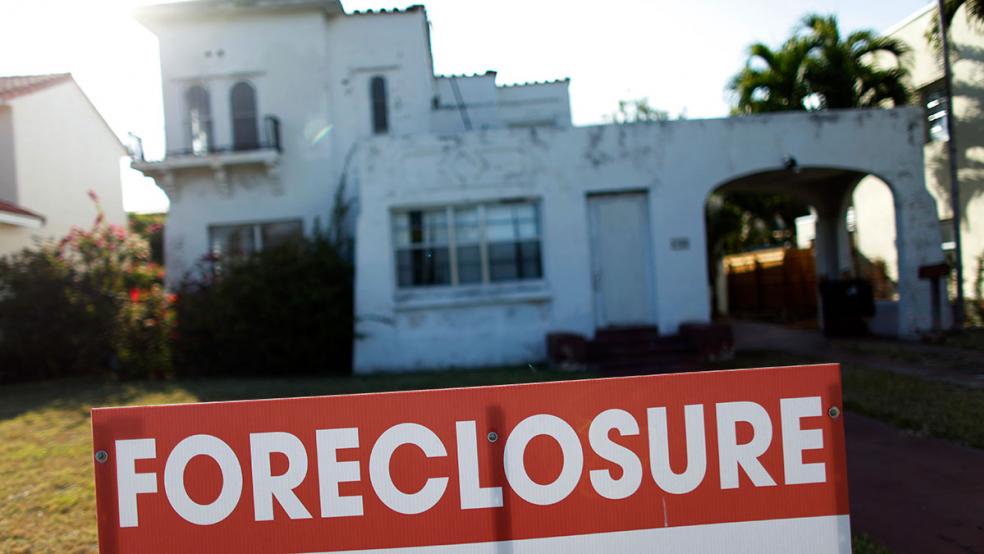In a piece of moderately good news for cities where the bursting of the housing bubble of the last decade devastated local real estate values and the municipal tax base, the Supreme Court has opened the door, albeit only slightly, to the possibility of seeking relief through the courts. It did so by green-lighting a case brought by the city of Miami against lenders Wells Fargo Bank and Bank of America, claiming that violations of fair housing laws by the banks led to the destruction of local real estate markets.
The ruling is important to the future of similar pending lawsuits across the country brought by other large cities looking to recoup some of the financial losses they suffered when the mortgage market collapsed.
Related: More Homebuyers Are Turning to Risky Mortgages
The primary question before the court had been whether the city had the standing to sue under the Fair Housing Act, which was passed as part of the Civil Rights Act of 1968. The law allows an “aggrieved party” to sue for damages resulting from discriminatory housing or mortgage lending practices. The banks were challenging a lower court’s ruling that the city met the definition of an aggrieved party.
In a 5-3 decision that saw Chief Justice John Roberts side with the four most liberal members, the court determined that the lower court’s decision on the standing issue had been correct. (The court’s newest member, Justice Neil Gorsuch, did not participate in the argument or decision, as he had not yet joined the court when the case was heard.)
However, the court also rejected part of the lower court ruling, which had determined that the city demonstrated enough of a “causal connection” between the banks’ behavior and the harm to municipal finances. They determined that the city would need to show a more direct link between discriminatory practices and financial damage to the city if the case was to move forward.
The basic argument at the heart of the city’s case is that the banks “intentionally targeted predatory practices at African-American and Latino neighborhoods and residents, lending to minority borrowers on worse terms than equally creditworthy non-minority borrowers and inducing defaults by failing to extend refinancing and loan modifications to minority borrowers on fair terms.”
Related: There’s a Big Fight Brewing Over the Mortgage-Interest Tax Deduction
The effect, the city claims, is that there were disproportionately large numbers of foreclosures in minority neighborhoods, damaging the city’s efforts at racial integration. This lowered Miami’s property tax revenue while creating increased demands on its emergency services departments.
The banks argued that Miami, not having been a party to the mortgage loans in question, couldn’t claim to be an aggrieved party. However, Justice Stephen Breyer, writing for the majority, disagreed. He noted that in previous decisions, the court had determined that the law was written with the intention of defining standing under the FHA as “broadly” as constitutionally permissible.
“The City’s alleged economic injuries thus arguably fall within the FHA’s zone of interests, as this Court has previously interpreted that statute. Stare decisis principles compel the Court’s adherence to those precedents, and principles of statutory interpretation demand that the Court respect Congress’ decision to ratify those precedents when it reenacted the relevant statutory text.”
However, the majority also found that the lower court had been too quick to accept the city’s argument that the harm from the burst housing bubble was directly caused by the banks’ behavior. The law, they argued, requires the city to prove that the banks’ misdeeds were the “proximate” cause of the harm and not simply a secondary effect.
Related: The Housing Market Horror Story Isn’t Over Yet
Because there is no precedent for defining “proximate cause” under FHA, the justices essentially told the lower court that it would have to create one.
“[T]he lower courts should define, in the first instance, the contours of proximate cause under the FHA and decide how that standard applies to the City’s claims for lost property-tax revenue and increased municipal expenses.”
For the time being, the decision creates only the certainty that there will be no resolution to the case in the near future.





